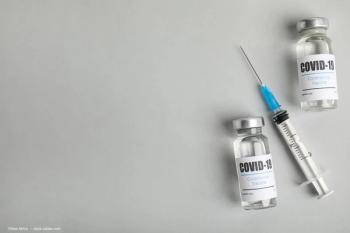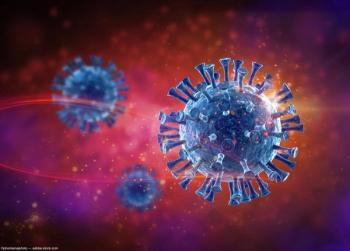
Pfizer coronavirus vaccine candidate demonstrates high efficacy
Pfizer Inc. and BioNTech SE this week announced their mRNA-based coronavirus vaccine candidate has demonstrated evidence of efficacy against COVID-19 in participants without evidence of infection.
Signaling a potential breakthrough in the coronavirus disease 2019 (COVID-19) battle, Pfizer Inc. and BioNTech SE this week announced their mRNA-based vaccine candidate, BNT162b2, has demonstrated evidence of efficacy against COVID-19 in participants without prior evidence of infection.
The company said in the release it plans to submit the drug for Emergency Use Authorization (EUA) to the U.S. Food & Drug Administration (FDA) by the end of November.
According to a news release, Pfizer and BioNTech’s mRNA-based vaccine candidate was found in the first interim efficacy analysis to be more than 90 percent effective in preventing infections in patients without evidence of prior COVID-19 infection.
According to the companies, that analysis evaluated 94 confirmed cases in trial participants.
The high efficacy rate came seven days after the second dose of the vaccine candidate meaning that it provides protection 28 days after the initiation of the two-dose schedule. There have not been any serious safety concerns but the study will continue to collect additional safety and efficacy data which will be discussed with regulators worldwide, the release says.
According to Albert Bourla, Pfizer chairman and CEO, the news “is a great day for science and humanity.”
“The first set of results from our Phase 3 COVID-19 vaccine trial provides the initial evidence of our vaccine’s ability to prevent COVID-19,” he said in a statement. “We are reaching this critical milestone in our vaccine development program at a time when the world needs it most with infection rates setting new records, hospitals nearing over-capacity and economies struggling to reopen.”
With the announcement, Bourla said the world is a “step closer to providing people around the world with a much-needed breakthrough to help bring an end to this global health crisis.”
In the statement, Bourla said the companies look forward to sharing additional efficacy and safety data generated from thousands of participants in the coming weeks.
“I want to thank the thousands of people who volunteered to participate in the clinical trial, our academic collaborators and investigators at the study sites, and our colleagues and collaborators around the world who are dedicating their time to this crucial endeavor,” he added. “We could not have come this far without the tremendous commitment of everyone involved.”
Based on current projections, the companies said in the release that they expect to produce globally up to 50 million vaccine doses in 2020 and up to 1.3 billion doses in 2021.
BioNTech co-founder and CEO Ugur Sahin pointed out that the first interim analysis of the global Phase 3 study provides evidence that a vaccine may effectively prevent COVID-19.
“This is a victory for innovation, science and a global collaborative effort,” Sahin said in a statement. “When we embarked on this journey 10 months ago this is what we aspired to achieve.”
Sahin noted in the statement that as cases continue to escalate, the announcement holds even more announcement.
“We will continue to collect further data as the trial continues to enroll for a final analysis planned when a total of 164 confirmed COVID-19 cases have accrued,” he said.
According to the release, the Phase 3 clinical trial of BNT162b2 began on July 27 and has enrolled 43,538 participants to date, 38,955 of whom have received a second dose of the vaccine candidate as of Nov. 8.
Approximately 42% of global participants and 30% of U.S. participants have racially and ethnically diverse backgrounds. The trial is continuing to enroll and is expected to continue through the final analysis when a total of 164 confirmed COVID-19 cases have accrued.
The study also will evaluate the potential for the vaccine candidate to provide protection against COVID-19 in those who have had prior exposure to SARS-CoV-2, as well as vaccine prevention against severe COVID-19 disease. In addition to the primary efficacy endpoints evaluating confirmed COVID-19 cases accruing from 7 days after the second dose, the final analysis now will include, with the approval of the FDA, new secondary endpoints evaluating efficacy based on cases accruing 14 days after the second dose as well.
In the release, the companies said they believe that the addition of these secondary endpoints will help align data across all COVID-19 vaccine studies and allow for cross-trial learnings and comparisons between these novel vaccine platforms.
The companies have posted an updated version of the study protocol at
Newsletter
Don’t miss out—get Ophthalmology Times updates on the latest clinical advancements and expert interviews, straight to your inbox.





























